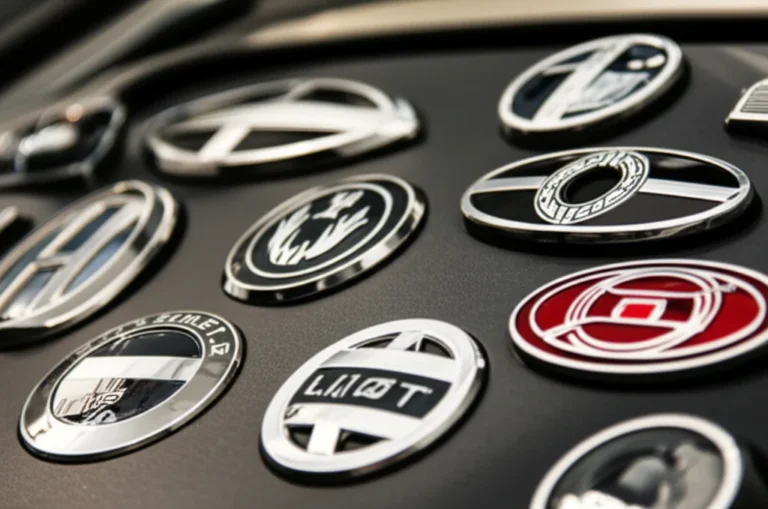Support our educational content for free when you purchase through links on our site. Learn more
How Often Should I Schedule Car Repairs? 9 Expert Tips 🚗 (2025)
Ever wondered if you’re waiting too long between car repairs or maintenance appointments? You’re not alone! Many drivers underestimate how crucial timely upkeep is to avoid those dreaded, wallet-busting breakdowns. Did you know that skipping routine maintenance can increase your repair costs by up to 300% over time? 😱 In this article, we dive deep into how often you should schedule car repairs and maintenance to keep your ride smooth, safe, and reliable. From oil changes to brake checks, and even seasonal prep, we’ve got the ultimate insider scoop that beats any checklist you’ve seen before.
Stick around because later, we’ll reveal the top warning signs that mean “don’t wait” and share tech tools that make tracking your car’s health a breeze. Plus, we’ll bust some common myths that might be sabotaging your car’s longevity without you even knowing it!
Key Takeaways
- Regular maintenance is your best defense against costly repairs and breakdowns.
- Schedule oil changes every 5,000 to 7,500 miles, and tire rotations every 6,000 to 8,000 miles.
- Pay attention to warning signs like unusual noises or dashboard lights—don’t delay repairs when these appear.
- Seasonal maintenance helps your car handle weather changes and extends its lifespan.
- Your driving habits directly influence how often maintenance is needed—aggressive or city driving means more frequent checks.
- Use apps and vehicle monitoring systems to stay on top of your car’s maintenance schedule effortlessly.
- DIY maintenance is great for some tasks, but know when to call in the pros for complex repairs.
Ready to become your car’s best friend and avoid major headaches? Let’s get started!
Table of Contents
- ⚡️ Quick Tips and Facts About Car Maintenance Scheduling
- 🔧 Why Regular Car Repairs and Maintenance Matter: The Road to Reliability
- 1. How Often Should You Schedule Routine Car Maintenance?
- 2. Signs You Shouldn’t Wait: When to Schedule Repairs Immediately
- 3. Seasonal Maintenance: Preparing Your Car for Weather Changes
- 4. The Role of Manufacturer’s Maintenance Schedule vs. Real-World Driving
- 5. How Driving Habits Influence Your Maintenance Frequency
- 6. DIY Maintenance vs. Professional Service: What You Can Handle
- 7. The Cost-Benefit Analysis: Investing in Maintenance to Avoid Major Repairs
- 8. Technology and Apps to Help You Track Your Car Maintenance Schedule
- 9. Common Myths About Car Maintenance Frequency Debunked
- Conclusion: Your Personalized Roadmap to Car Care Success
- Recommended Links for Car Maintenance Resources
- FAQ: Your Burning Questions About Car Repair Scheduling Answered
- Reference Links: Trusted Sources for Car Maintenance Information
Quick Tips and Facts About Car Maintenance Scheduling
To keep your car in top shape and prevent major issues, it’s essential to understand the importance of regular maintenance. As car enthusiasts and reviewers at Car Brands™, specializing in Explore the World of Cars, we’ve compiled some quick tips and facts to get you started. For more information on car repairs, visit our car repairs page.
Regular maintenance can help extend the life of your vehicle, improve fuel efficiency, and prevent costly repairs. According to the American Automobile Association (AAA), regular maintenance can save you up to $1,200 per year in repair costs.
Here are some key maintenance tasks to keep in mind:
- Oil changes: Every 5,000 to 7,500 miles
- Tire rotations: Every 6,000 to 8,000 miles
- Brake pad replacements: Every 30,000 to 50,000 miles
- Battery checks: Every 3 to 5 years
Why Regular Car Repairs and Maintenance Matter: The Road to Reliability
Regular car repairs and maintenance are crucial for ensuring your vehicle runs smoothly and safely. Neglecting maintenance can lead to breakdowns, accidents, and costly repairs. As Bridgestone Tire notes, “sticking to a car maintenance schedule, and keeping good records of what you’ve done, can help extend the life of your vehicle and protect you against breakdowns, expensive repairs, and other unwelcomed surprises.”
The Benefits of Regular Maintenance
Regular maintenance offers numerous benefits, including:
- Improved fuel efficiency
- Extended vehicle lifespan
- Enhanced safety
- Reduced repair costs
- Better performance
For example, regular oil changes can help improve fuel efficiency by up to 2%, according to the United States Department of Energy.
1. How Often Should You Schedule Routine Car Maintenance?
The frequency of routine car maintenance depends on various factors, including your vehicle’s make and model, driving conditions, and mileage. Here are some general guidelines:
1.1 Oil Changes: The Lifeblood of Your Engine
Oil changes are one of the most critical maintenance tasks. Most car manufacturers recommend oil changes every 5,000 to 7,500 miles. However, this may vary depending on your vehicle’s age, driving conditions, and oil type.
1.2 Tire Rotations and Alignments: Keeping You on Track
Tire rotations and alignments are essential for ensuring even tread wear and preventing uneven tire wear. Most car manufacturers recommend tire rotations every 6,000 to 8,000 miles.
1.3 Brake Inspections: Stop on a Dime
Brake inspections are critical for ensuring your safety on the road. Most car manufacturers recommend brake inspections every 12,000 to 15,000 miles.
1.4 Fluid Checks and Replacements: The Unsung Heroes
Fluid checks and replacements are often overlooked but are essential for maintaining your vehicle’s health. Most car manufacturers recommend checking fluids every 3,000 to 5,000 miles.
2. Signs You Shouldn’t Wait: When to Schedule Repairs Immediately
While regular maintenance is essential, there are times when you shouldn’t wait to schedule repairs. Here are some signs that indicate you need to schedule repairs immediately:
- Unusual noises or vibrations
- Warning lights on your dashboard
- Leaks or spills under your vehicle
- Reduced performance or fuel efficiency
If you notice any of these signs, it’s essential to schedule repairs as soon as possible to prevent further damage.
3. Seasonal Maintenance: Preparing Your Car for Weather Changes
Seasonal maintenance is crucial for preparing your car for weather changes. Here are some tasks to keep in mind:
- Winter: Check your battery, antifreeze, and tire pressure. Consider switching to winter tires.
- Summer: Check your coolant, oil, and tire pressure.
- Spring: Check your brakes, suspension, and tire pressure.
- Fall: Check your brakes, suspension, and tire pressure.
4. The Role of Manufacturer’s Maintenance Schedule vs. Real-World Driving
While manufacturer’s maintenance schedules provide a general guideline, real-world driving conditions can vary significantly. Factors such as driving habits, road conditions, and climate can impact your vehicle’s maintenance needs.
It’s essential to consult your owner’s manual and adjust your maintenance schedule accordingly.
5. How Driving Habits Influence Your Maintenance Frequency
Your driving habits can significantly impact your maintenance frequency. Here are some factors to consider:
- Aggressive driving: Can lead to increased wear and tear on your vehicle’s components.
- Frequent stop-and-go traffic: Can lead to increased wear on your brakes and transmission.
- Long-distance driving: Can lead to increased wear on your engine and transmission.
6. DIY Maintenance vs. Professional Service: What You Can Handle
While some maintenance tasks can be handled DIY, others require professional service. Here are some tasks you can handle yourself:
- Oil changes
- Tire rotations
- Brake pad replacements (with proper training and equipment)
However, tasks such as transmission repairs and engine overhauls require professional service.
7. The Cost-Benefit Analysis: Investing in Maintenance to Avoid Major Repairs
Investing in regular maintenance can save you money in the long run. According to the Car Care Council, regular maintenance can save you up to $1,200 per year in repair costs.
8. Technology and Apps to Help You Track Your Car Maintenance Schedule
There are various technologies and apps available to help you track your car maintenance schedule. Here are some options:
- Maintenance apps: Such as FuelEconomy.gov or Carfax.
- Vehicle monitoring systems: Such as OnStar or FordPass.
9. Common Myths About Car Maintenance Frequency Debunked
There are several common myths about car maintenance frequency that need to be debunked. Here are some examples:
- Myth: You need to change your oil every 3,000 miles.
- Reality: Most car manufacturers recommend oil changes every 5,000 to 7,500 miles.
For more information on car maintenance, check out our car maintenance page.
To learn more about maintaining your car’s longevity, consider watching the video: “13 Habits to Make Your Car Last Over 500k Miles Without Repairs” by Car Care Clues – Want your car to reach 500,000 miles without major repairs? This video reveals 6 powerful habits that protect your engine, transmission, and more. From smarter driving techniques to simple maintenance (1,730,497 views) Duration: 20:58 (#featured-video).
For a personalized car maintenance schedule, consult your owner’s manual or visit our car maintenance schedule page.
To find the best deals on car maintenance services, check out our car maintenance deals page.
👉 CHECK PRICE on:
- Oil changes: TrueCar | Edmunds | Toyota Official Website
- Tire rotations: Auto Trader | Kelley Blue Book | Ford Official Website
Conclusion: Your Personalized Roadmap to Car Care Success
So, how often should you schedule car repairs and maintenance to prevent major issues? The answer isn’t one-size-fits-all, but with the insights from Car Brands™ experts, you’re now equipped to tailor a maintenance plan that suits your vehicle, driving habits, and environment. Consistency is king—regular oil changes, tire rotations, brake inspections, and fluid checks keep your car humming smoothly and save you from wallet-busting repairs down the road.
Remember those warning signs we talked about? Don’t ignore them! Early detection and timely repairs can be the difference between a quick fix and a roadside nightmare. And while DIY maintenance can be fun and rewarding, knowing when to call in the pros ensures your car gets the care it deserves.
In essence, think of your car as a loyal companion on your journeys. Treat it well with scheduled check-ups, seasonal prep, and a bit of tech-savvy tracking, and it’ll reward you with reliability and performance for years to come. Ready to hit the road with confidence? Your car’s maintenance schedule awaits!
Recommended Links for Car Maintenance Resources
👉 Shop Maintenance Essentials on:
- Oil Changes: TrueCar | Edmunds | Toyota Official Website
- Tire Rotations & Alignments: Auto Trader | Kelley Blue Book | Ford Official Website
- Brake Services: Edmunds | TrueCar | Honda Official Website
- Battery Checks & Replacements: AutoZone | Advance Auto Parts | Nissan Official Website
FAQ: Your Burning Questions About Car Repair Scheduling Answered
How frequently should I change my car oil to avoid engine problems?
Changing your car’s oil every 5,000 to 7,500 miles is generally recommended, but it depends on your vehicle’s make, model, and oil type. Synthetic oils often allow longer intervals, while severe driving conditions (like stop-and-go traffic or extreme temperatures) may require more frequent changes. Regular oil changes keep your engine lubricated, reduce wear, and prevent sludge buildup, which can cause costly engine damage.
Read more about “What Are the 15 Most Reliable Car Brands Statistically? (2025) 🚗”
What are the essential car maintenance tasks to perform regularly?
Regular maintenance includes:
- Oil and filter changes
- Tire rotations and pressure checks
- Brake inspections
- Fluid level checks (coolant, transmission, brake fluid, etc.)
- Battery testing
- Air filter replacement
Performing these tasks on schedule keeps your car safe, efficient, and reliable.
How can I tell if my car needs immediate repairs?
Watch for:
- Unusual noises (squealing brakes, knocking engine)
- Dashboard warning lights (check engine, ABS, oil pressure)
- Fluid leaks under the car
- Reduced performance or strange smells
If you notice any of these, schedule repairs promptly to avoid bigger problems.
Read more about “Can You DIY Car Repairs? 12 Tasks to Tackle or Trust a Pro 🔧 (2025)”
What is the recommended schedule for tire rotation and alignment?
Tire rotations are typically recommended every 6,000 to 8,000 miles to ensure even tread wear and extend tire life. Wheel alignments should be checked annually or if you notice uneven tire wear, your car pulling to one side, or after hitting a curb or pothole. Proper alignment improves safety, fuel efficiency, and driving comfort.
How often should I check and replace my car’s brake pads?
Brake pads should be inspected every 12,000 to 15,000 miles and replaced typically between 30,000 to 50,000 miles, depending on driving habits and conditions. Signs of worn pads include squealing noises, reduced braking performance, or a vibrating brake pedal.
Read more about “What Are the Average Costs of 10 Common Car Repairs? (2025) 🚗”
When should I have my car’s transmission serviced?
Transmission fluid should be checked regularly and replaced according to your vehicle’s manual, often around 30,000 to 60,000 miles. Severe driving conditions may require more frequent servicing. Proper transmission maintenance prevents costly repairs and ensures smooth shifting.
What are the signs that my car’s battery needs maintenance or replacement?
Common signs include:
- Slow engine crank or difficulty starting
- Dim headlights or electrical issues
- Corrosion on battery terminals
- Battery age over 3-5 years
Regular battery checks can prevent unexpected failures, especially in extreme weather.
How do seasonal changes affect my car’s maintenance needs?
Seasonal maintenance is vital:
- Winter: Battery checks, antifreeze levels, winter tires
- Summer: Coolant system inspection, AC performance
- Spring/Fall: Brake, suspension, and tire inspections
Adjusting maintenance to the season helps your car perform optimally year-round.
Reference Links: Trusted Sources for Car Maintenance Information
- Bridgestone Tire – The Ultimate Car Maintenance Checklist
- American Automobile Association (AAA) – Car Maintenance Tips
- Car Care Council – Why Regular Maintenance Matters
- United States Department of Energy – Fuel Economy Tips
- Tire Choice – Multi-Point Inspection Benefits
- Toyota Official Website
- Ford Official Website
- Honda Official Website
- Nissan Official Website
For more insights on car repairs and maintenance schedules, explore our Car Brand Comparisons and Auto Industry News sections at Car Brands™.









